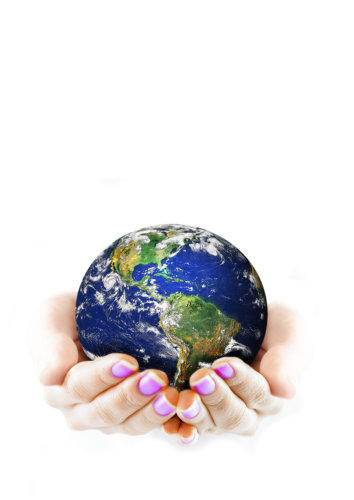


Dieser Bereich ist nur für Mitglieder und Vertriebspartner zugänglich.
We live on the blue planet. Whether plant,
animal or human, water plays a crucial role for
every organism. However, only the smallest
part of the total water supply on earth, namely
0.3%, is available as drinking water. This little
water, measured by the total water supply on
earth, is in danger. Scientists point to the
worrying increase in the pollution of our drinking
water resources. A radical rethink in how we
deal with our environment is therefore urgently
necessary.
Clean, unpolluted drinking water is becoming
increasingly scarce. Chemical-laden
wastewater from industry and agriculture,
household wastewater full of cleaning and
cleaning agents and the infiltration of poisons
from hazardous waste landfills into the
groundwater, make it increasingly difficult for
waterworks and especially well owners of own
and individual supply systems to comply with
official limit values.
However, the health risks of water pollution are
still insufficiently researched and only a few
effects are known, such as those of: nitrate,
nitrite, pesticides (e.g. atrazine),
"pseudohormones", drug residues, antibiotics,
lead, copper, phosphate , Chlorine, etc.
Depending on the substance, they are
considered carcinogenic, can cause damage to
the genetic material, infertility, functional
disorders in the nervous system or brain,
damage to bones and skeleton, learning and
concentration difficulties, or, as with nitrite, even
death in infants to lead.
But even if limit values are observed, there are
no studies on the summation effect of the
substances or what chemical compounds they
form in the body.
Scientists are warning of new disease-causing
bacteria that have led to a sharp increase in
resistant bacteria and microorganisms through
the increased use of antibiotics in medicine
and animal husbandry. The scientists are also
concerned about the resistance of bacteria
and parasites (cryptosporidia, etc.) to the
chemicals commonly used in water treatment
(chlorination, ozonation) or UV radiation.
Quality assurance and protection against
water pollution
Almost all dishes are prepared or cooked with
water, vegetables and fruit washed, coffee and
tea brewed. The "drinking water" is partly used
in the boiled state, but above all pollutants
cannot be eliminated. They get into our body
unhindered with the food. Up to the age of 60,
an adult consumed an average of 55,000 liters
of water. With such a quantity, it is only
understandable that we want healthy, pure
water.
In the long term, of course, only an ecological
approach to nature is a way out of this misery.
But in order to be able to be sure now that you
are not endangering your own health
anymore, initiative also seems to be
necessary with regard to water treatment.
OWN QUALITY ASSURANCE


© Copyright 2020 PROVITEC GmbH
HELP | WITHDRAWAL | IMPRINT | CONTACT



Dieser Bereich ist nur für Mitglieder und Vertriebspartner zugänglich.
We live on the blue planet. Whether
plant, animal or human, water plays a
crucial role for every organism.
However, only the smallest part of the
total water supply on earth, namely
0.3%, is available as drinking water.
This little water, measured by the total
water supply on earth, is in danger.
Scientists point to the worrying increase
in the pollution of our drinking water
resources. A radical rethink in how we
deal with our environment is therefore
urgently necessary.
Clean, unpolluted drinking water is
becoming increasingly scarce. Chemical
wastewater from industry and
agriculture, household wastewater full of
cleaning and cleaning agents and the
infiltration of poisons from hazardous
waste landfills into the groundwater,
make it increasingly difficult for
waterworks and especially well owners
of own and individual supply systems to
comply with official limit values.
However, the health risks of water
pollution are still insufficiently
researched and only a few effects are
known, such as those of: nitrate, nitrite,
pesticides (e.g. atrazine),
"pseudohormones", drug residues,
antibiotics, lead, copper, phosphate ,
Chlorine, etc. Depending on the
substance, they are considered
carcinogenic, can cause damage to the
genetic material, infertility, functional
disorders in the nervous system or
brain, damage to bones and skeleton,
learning and concentration difficulties,
or, as with nitrite, even death in infants
to lead.
But even if limit values are observed,
there are no studies on the summation
effect of the substances or what
chemical compounds they form in the
body.
Scientists are warning of new disease-
causing bacteria that have led to a
sharp increase in resistant bacteria and
microorganisms through the increased
use of antibiotics in medicine and
animal husbandry. The scientists are
also concerned about the resistance of
bacteria and parasites (cryptosporidia,
etc.) to the chemicals commonly used in
water treatment (chlorination,
ozonation) or UV radiation.
Quality assurance and protection
against water pollution
Almost all dishes are prepared or
cooked with water, vegetables and fruit
washed, coffee and tea brewed. The
"drinking water" is partly used in the
boiled state, but above all pollutants
cannot be eliminated. They get into our
body unhindered with the food. Up to
the age of 60, an adult consumed an
average of 55,000 liters of water. With
such a quantity, it is only
understandable that we want healthy,
pure water.
In the long term, of course, only an
ecological approach to nature is a way
out of this misery. But in order to be able
to be sure now that you are not
endangering your own health anymore,
initiative also seems to be necessary
with regard to water treatment.
EIGENQUALITÄTSSICHERUNG

© Copyright 2020 PROVITEC GmbH

trinkWasser
HELP | WITHDRAWAL
IMPRINT | CONTACT






















